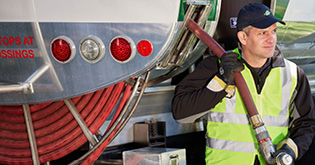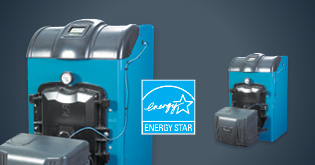- My Account:
- Sign In
- Register
- Make Payment
Sales 877.359.2151
Service 973.366.3100
Sales 877.359.2151
Service 973.366.3100

What backup generator is right for you and your home?
A backup generator can help you make it through a power outage comfortably and safely, and ensure that life goes on as normal when power goes off. It will keep crucial systems running and save you money.
Before purchasing a generator, you should consider the following:
- Your geographic location
- The size of your home
- Number and type of appliances and equipment that may require backup power
There are two generator options available for home backup power:
- Standby (or whole house generator)
- Portable generator
 Both provide the power you may need, but there are some important differences between the two.
Both provide the power you may need, but there are some important differences between the two.
- Standby generators – A standby generator is permanently installed outside the home, and typically runs on propane or natural gas. If the power goes out, the generator will turn on automatically and supply power to your home in moments. Standby generators can be expensive, but many homeowners living in areas that may be hurricane or flood-prone find them to be a smart investment.
- Portable generators – Portable generators typically run on gasoline or diesel, although natural gas and propane models are available. Due to their mobility and lower costs, these generators are ideal if you only need limited or occasional backup power. There are a few safety issues to be aware of, which you can find further down this page.
Standby and portable generators – Get the facts.
 Standby generator installation
Standby generator installation- Standby generator benefits
This type of generator can power essential items such as your refrigerator, cooking appliances, furnace, entertainment and medical devices, and necessary business equipment to prevent having to throw out hundreds of dollars in spoiled food, prevent frozen pipes from bursting (that cost potentially thousands of dollars in damage), keep sump pumps running and prevent flooding. - Portable generators - How they work
This generator is a good back-up solution for people who only lose power on rare occasions. They can run on gasoline, diesel, natural gas or propane, and can be used to supply power to a number of crucial items in your home. It should not be used unless a generator transfer switch has been properly installed. - Portable generator benefits
Portable generators cost substantially less than standby generators, and can be moved easily so you can use it where ever you need (at home, camping, etc.). - Portable generator safety
Never plug your generator directly into the wall outlet. This is known as backfeeding, and sends power beyond the house, which could endanger utility works and others served by the same transformer. Portable generators must always be kept outside in a dry area, not inside the home, or any enclosed or partially-enclosed spaces (a basement, garage, or crawl space) due to the emission of carbon monoxide (CO), electrocution, and fire risks.
Now that you know your options, talk with a Region Energy professional to help you decide which generator is right for you and your family.



.jpg?sfvrsn=ba81b4e4_1)
.jpg?sfvrsn=43a0195a_3)